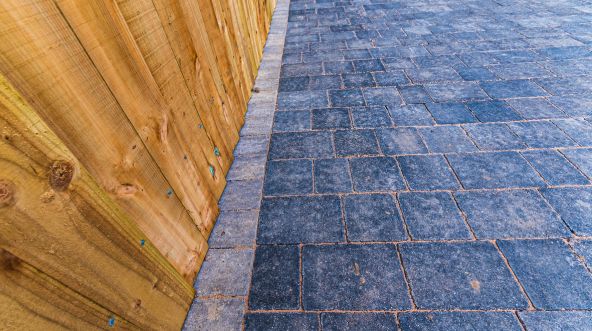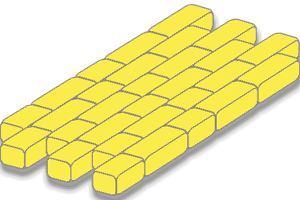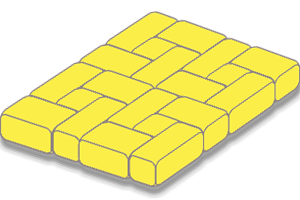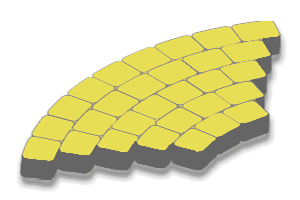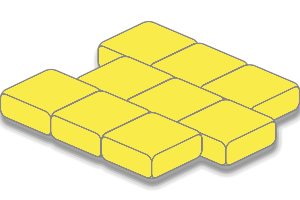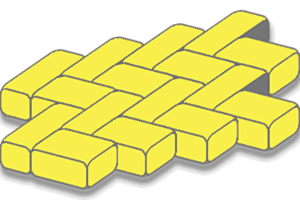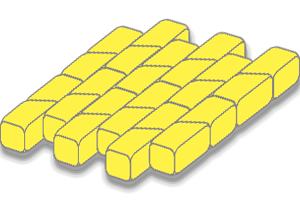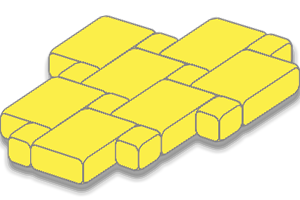Menu
close
There are many different ways of enhancing your Thirsk home and improving its kerb appeal. You could change your front door or add new door furniture. You could landscape your front garden - if you have one. You could have the brick, stone, or tiles professionally cleaned. You could retile your roof or replace the facias and soffits. You might even want to paint the front of your home or apply a coat of render.
All of these are valid ways to freshen up your home and make it look appealing, whether you plan to sell up or just want to give it a makeover. Either way, all of these methods will add value to some extent, as well as making your home look great.
Another method that is often overlooked is to have a new driveway installed. Millions of homeowners across the UK have discovered this in recent years, and this trend is certain to continue.
In some cases, particularly in urban areas where space is limited, people choose to replace their front gardens with a new driveway. It's a practical solution that saves them from having to compete with neighbours for a parking space, but this doesn't mean that it has to be bland and boring.
Driveway designs and materials in Thirsk have come a very long way since the old days of basic concrete slabs, scattered gravel, and simple tarmac surfaces. You can still have all the old materials, and even some of these have been improved and upgraded. You can also have resin-bound or resin-bonded driveways.
But one material that has proved to be an extremely popular choice is paving blocks.
Driveway block paving has revolutionised the look of our driveways all across Thirsk. You can get textured paving, natural stone, smooth edges, a traditional cobblestone look - when it comes to colours and patterns, the only limit is your imagination! The only caveat is that you should try to make sure that whatever design you choose fits in with the rest of the neighbourhood.
Perhaps you've been considering a new driveway and want to know more about driveway block paving?
If so, then this guide is just what you need.
The answer might seem obvious, but it's always best to be sure that everyone is on the same page.
Rather than pouring a featureless slab of concrete or setting down a layer of dull tarmac, many people these days opting for driveway block paving. This involves having a path, driveway or patio made from individual blocks that are laid by hand in a pattern and colour of your choice.
There's a fantastic range of shades and textures, and these can be laid in the design of your choice, whether your tastes are classic, traditional, or contemporary. There is certain to be a range that will suit your taste and your home.

There are two basic types of blocks: clay and concrete.
These are sometimes referred to as block paving bricks, but don't confuse these with house bricks! You may have seen old red brick paths in the past, perhaps as garden paths or even patios. However, these tend to crumble and crack, especially when put under pressure. This makes them unsuitable for parking your car as they can't take the constant weight.
The concrete and clay blocks used for block paving are designed to withstand heavy loads, making them ideal for the job.
As well as concrete or clay, recycled composite materials are sometimes used, such as rubble from building projects and crushed glass.
As well as being called blocks or bricks, these are also referred to as pavers.
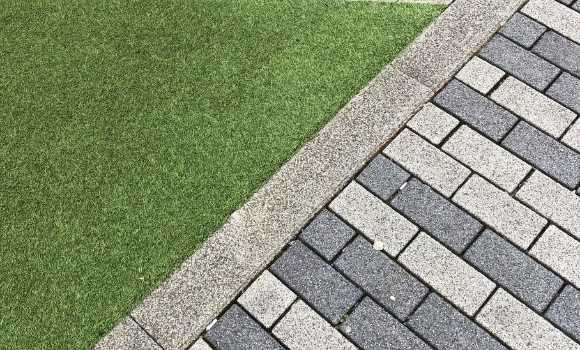
One of the main advantages of driveway block paving in Thirsk is that it is aesthetic as well as functional. And it doesn't have to be limited to your driveway.
You can use this method to create a stunning patio design or enhance and personalise your outdoor space. Block paving that begins at the street and wraps around your property will provide a sweeping, continuous surface, that ties in your home and garden, creating a real sense of style and class.
Aside from this, here are a few of the other benefits of block paving:

Driveway paving products come in a great range of styles and tones, as well as being textured, so there's bound to be one that appeals to you:
Natural paving blocks will appeal to many people as it is durable, looks amazing, and is easy to maintain. The shades of natural stone are very appealing and the materials, such as granite setts, are incredibly tough and hard-wearing.
Also known as CBPs (concrete block pavers), these are made from moulded concrete. These paving blocks are available in a huge variety of sizes, colours, shapes and textures, from a traditional look to a more contemporary style.
The pigments are added during manufacture, in processes known as through-coloured or a face-mix. This is important, as through-coloured blocks have the pigment running throughout the entire block, whereas the face-mix only colours the side of the block that will be visible when installed.
Why is it important? The choice of colouring method may affect the price, but through-coloured blocks can be inverted if there is any surface damage or fading.
Again, the range of styles is extensive, making it simple for you to achieve stunning and unique designs for driveways, patios or paths.
Clay pavers have two advantages over standard concrete block paving. First, the colour is natural, therefore not subject to fading. These can be combined to make an almost infinite range of blues, browns, buff-coloured blocks, charcoal, red, terracotta - whatever shade you can think of! These types of driveway paving products are always through-coloured, unlike some of the concrete examples above.
Second, they have two presentable faces, meaning that they can be inverted in the event of staining.
Of course, the choice is entirely yours, but each different type of block has its own set of advantages and will affect the total cost of the finished project.
All of these different types of block paving materials have a range of thickness options, creating a huge variety of effects and finishes.
You'll see the term paving bricks used at times in relation to driveway block paving. However, this does not mean that regular traditional house bricks are used for block paving projects. They are not suitable and will soon crack or flake, especially where a car is parked.
While you might see red bricks used to create paths in kitchen gardens or some old houses, they aren't the best material for driveways.
Alternatively, driveway paving products are not suitable for building walls!

This is one of those jobs that should really be left to the professionals. Some homeowners feel confident enough to do the job themselves, but most will end up regretting this decision. Besides, most people can really do without the hassle!
If you do a poor job, it will not only look bad but you could also cause a trip hazard from uneven pavers, and your driveway might experience subsidence.
Your driveway block paving will be installed by a team of driveway specialists using the best quality materials in the trade. They will liaise with you to discover what colours and patterns you desire, as well as advising which ones are best suited to your property and neighbourhood.
The service will include any excavation work and the laying of a base level, followed by the installation of the driveway pavers and any finishing touches.
This is the best way to ensure that your new driveway looks amazing.

The team will begin by inspecting the site to assess whether excavation is required. In some cases, driveway pavers can be installed over an existing driveway, although this must be in very good condition.
However, it is often best to dig out and start from scratch so that a good quality sub-base can be laid and compacted. This is an essential step as it provides a stable and strong foundation on which to lay the blocks. The sub-base may only be a few centimetres thick, but it helps to spread the load, thus reducing the risk of damage and sinking. It also aids drainage, which is another important issue we'll come to later.
A layer of sharp sand is spread across the sub-base and raked out and checked to make sure it is level.
The installers will set the edges to define the working area, then start laying the blocks in the desired pattern. They should take blocks from different batches to avoid noticeable changes in shade in one area.
Once all the blocks are in place a layer of sharp sand is swept across the surface to fill the gaps between them. A vibrating plate is then passed across the top to pack the sand into the spaces, as this will stop the blocks from shifting and ensure that they are all level. This step is usually repeated for good measure.
And your driveway block paving is complete!

Obviously, the total cost will depend on the size of the project and whether it includes any further landscaping work.
Prices are charged per square metre of block paving and general take into account any preparation, such as the laying of a sub-base.
Here are a few factors that will affect the total cost:
As a very general rule, an average block paving driveway costs around £4,500.

If you want to create an impression with your new driveway, give some thought to what style and aesthetic you want to achieve. What size is your project? Does it include a path or patio?
Think about the colour scheme you want, or whether it's a traditional or contemporary style. Consider the pattern and whether you want a textured surface.
Once you have an idea about the dimensions, design, and materials you want, contact your driveway block paving specialists for an affordable, practical and attractive solution. It will enhance your home, add value, and look amazing for many years to come.
